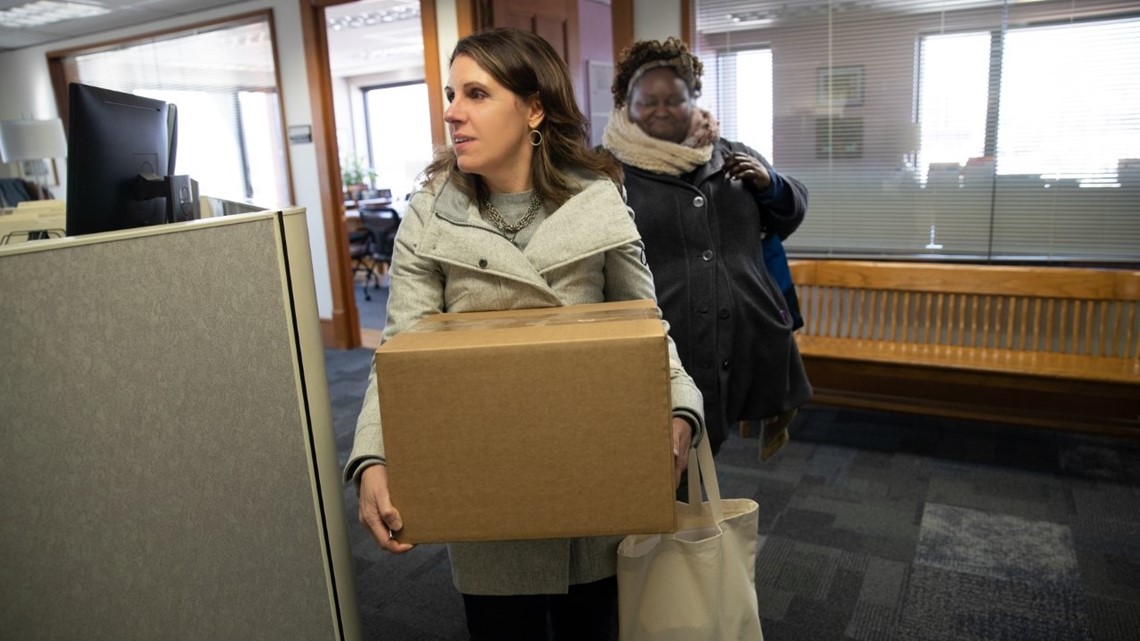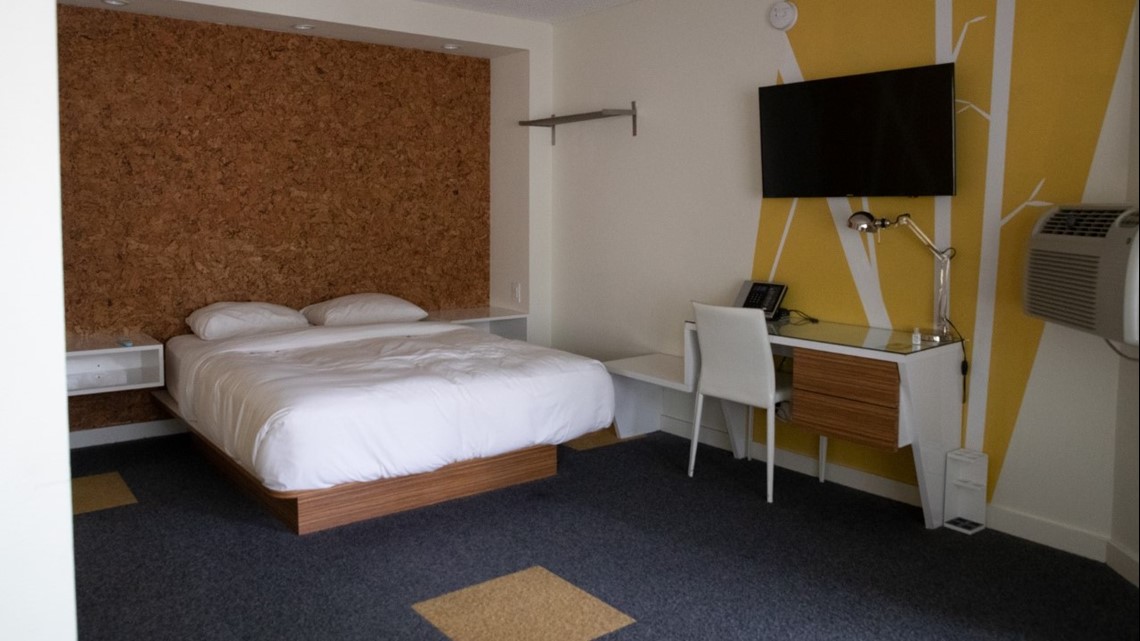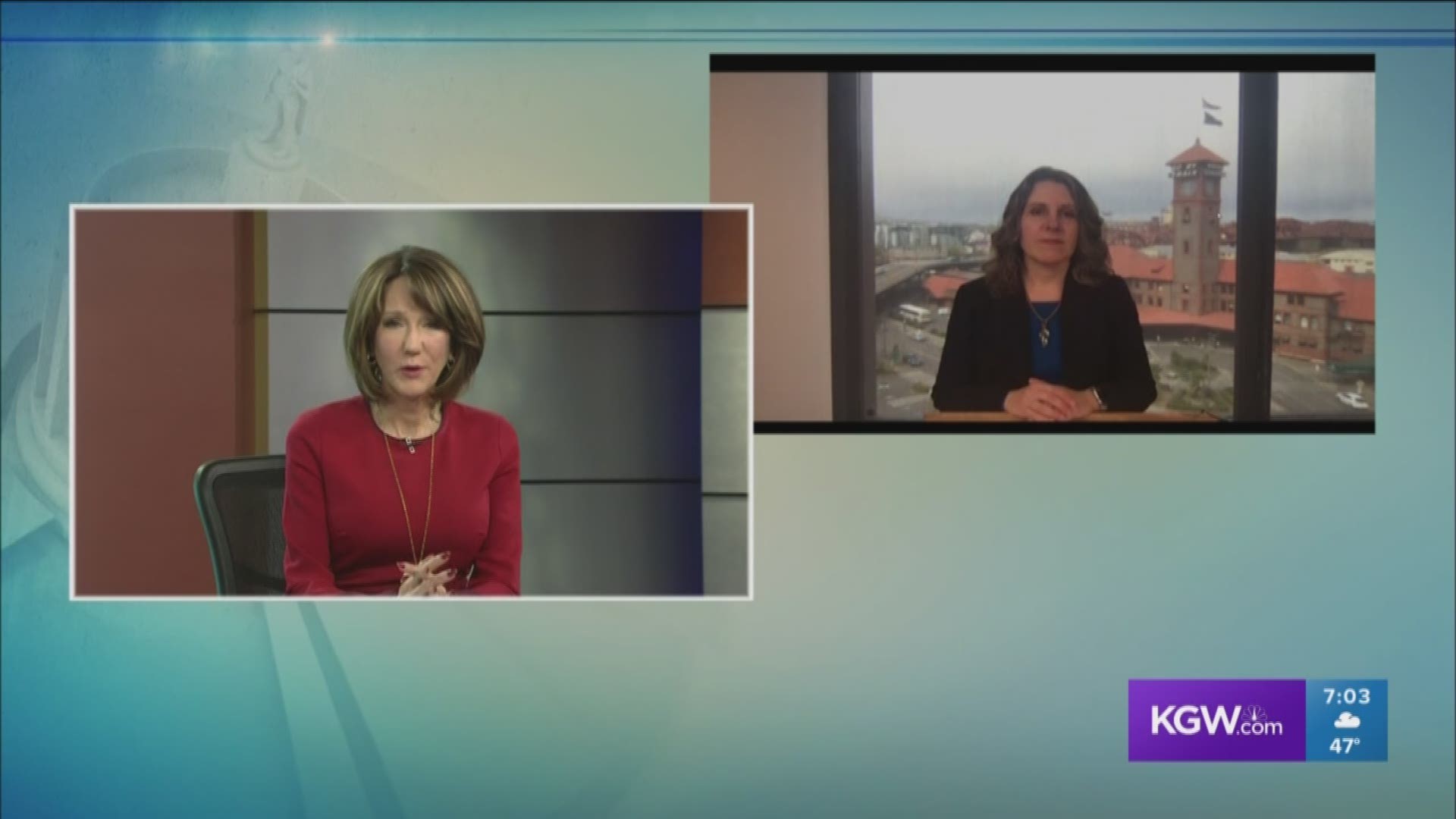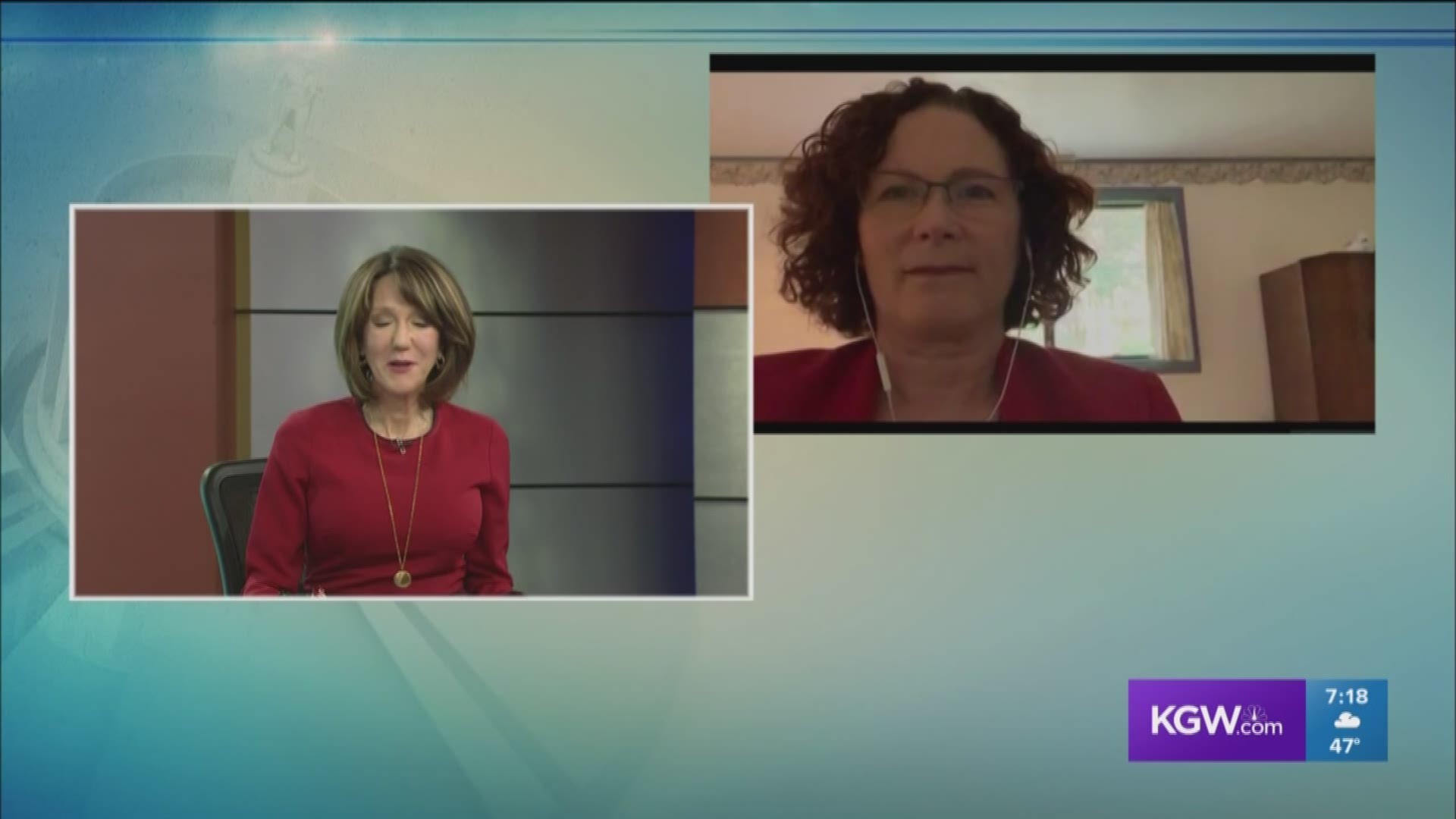PORTLAND, Ore. — Straight Talk this week featured two of Oregon's top leaders offering different perspectives on the coronavirus pandemic.
Multnomah County Chair Deborah Kafoury is leading the state's most populous county through the unprecedented health crisis. While Labor Commissioner, Val Hoyle, is helping employers and employees navigate the challenging new landscape. Hoyle, who lives in rural Lane County, outside Springfield, also spoke about the different viewpoint of the crisis for small town Oregon.
At the start of the coronavirus heath crisis, Kafoury wanted to be at the heart of the county's emergency response. So, she moved her office from the county building on the east side of the Hawthorne Bridge to the health building in Northwest Portland.
"We have hundreds of employees coming together from all departments working on logistics, working to get food to hungry people, and nurses investigating, once a COVID-19 case is found. Everyone is pitching in," she said.


Moderator Laural Porter asked Kafoury what it's like leading the state's most populous county through a pandemic unlike anything we've ever experienced.
"It's difficult. You can imagine the anxiety I feel. The terror not just for my family, but for all the people in our community," she said.
While there's anxiety, Kafoury said she's also noticed and is heartened by all the good people are doing.
"I get to see the people going above and beyond to help others. I hear stories about young people slipping notes under apartment doors saying if you need groceries to call them for help," she said.
Multnomah County provides the largest social safety net in the state. Kafoury has made taking care of the county's most vulnerable citizens a top priority. The county has opened additional shelters so people staying there can keep a safe distance apart. It's partnering with hotels, including the Jupiter Hotel, to provide rooms for people who may have symptoms of cold or flu, but who have not tested positive for COVID-19.


She says they're working with other facilities to care for individuals who may test positive.
Kafoury encouraged residents who've been laid off from their jobs or who are underemployed to get involved. There are paid positions available.
"We need people to staff shelters, we need people to deliver food to people who are hungry, we need people to staff our child care centers. If you are healthy and able, there's a lot of work to be done," she said. (Story continues below)
Besides being a health crisis, Kafoury said this is also a mental health crisis.
Another one of her priorities is to help those who are experiencing fear and isolation.
"We've heard stories of people already feeling desperate. They're being told to stay home, to isolate. For a lot of people who live alone that can be very difficult," she said.
She said they are employing people in every aspect of mental health to help.
The Multnomah County crisis line is open. 503-988-4888. She also encouraged people to call 211 for help with resources. And the Lines for Life helpline is staffed 24-7. You can reach them at 1-800-273-8255.
Kafoury said she understands parents' extra challenges right now with schools closed and kids at home. She has three children at home, too.
"They're feeling anxious. My daughter, in particular, misses hanging out with her friends," Kafoury said.
She encouraged parents to be there for for their children, especially now.
"Listen to them, encourage them, and realize their fears are real," she said.
Kafoury said she knows this is a really trying time for everyone.
"The most important thing we can do is have a sense of patience and compassion for each other.
It's going to be hard. But, we are going to get through this," she said.
Labor Commissioner Val Hoyle, said the experience of living through the coronavirus pandemic is different for small town Oregon. She said a lot of people in rural areas feel the messaging about the pandemic is focused on the Portland metro area and not on them.
She said there are a couple of reasons for that. One, of course, is that the metro region has more people, but she also said they've lost their local news sources.
"We've lost our local newspapers bought by national companies. We've lost our local reporters, we've lost the ability to have local news," she said. (Story continues below)
Commissioner Hoyle also said many rural residents work in the natural resources industry, or they're farmers, or they work in manufacturing. She said they're the ones who put the food on supermarket shelves and they go to work every day.
"There's not a magic food fairy who waves her magic wand and puts things on the shelves at Trader Joe's and Whole Foods. The bottom line is it comes for rural communities," she said.
Hoyle said, in a way, the pandemic doesn't feel real to them and that the messaging isn't for them.
She said she, along with many other rural Oregonians, grew up in a culture with a strong work ethic, and it may be hard for people to feel they can stay home.
"They feel you have to go to work, you go to work unless you're dying. They may be the only one in their family bringing home a paycheck," she said.
Her office is trying to get the word out to small towns that it's important to social distance and to stay home if they're able, and this virus isn't something you just power through.
She reminded Oregonians they have twelve weeks of protected leave whether they're sick, caring for a family member, or a child at home because school is out. It’s not paid time, but it protects an employee’s job. Workers are also entitled to one hour of sick time for every 30 hours worked, up to 40 hours.
"This is a very scary time. But we are Oregonians and there's a safety net people paid into. This is the time to use it," she said.
Hoyle also emphasized how impressed she is with the spirit of the state's citizens whether in small towns or cities.
"I am really heartened at how many people have stepped up to help their neighbors and communities. It makes me proud to be a citizen of this state," she said.
Straight Talk airs Friday at 7 p.m, Saturday and Sunday at 6:30 pm, and Monday morning at 4:30. It's also available as a podcast.


